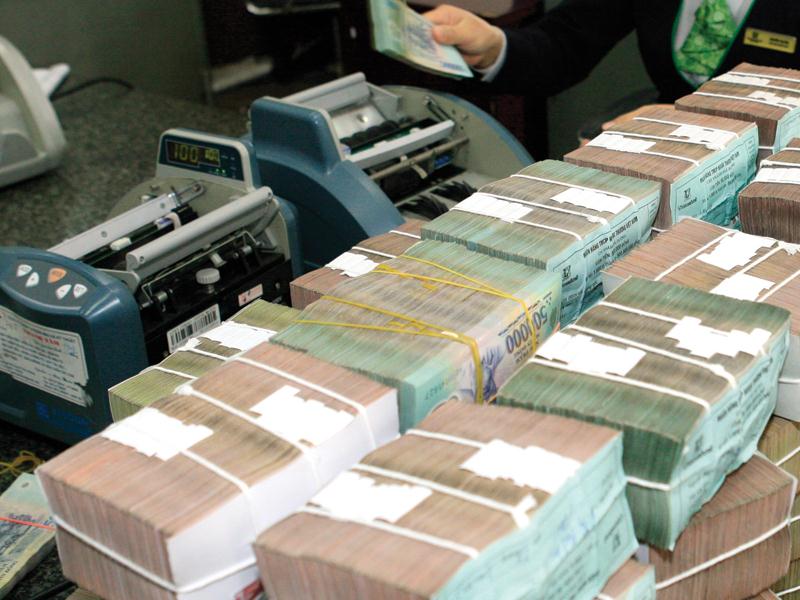|
Economy lacks capital, even as treasury
deposits remain high
While the state treasury has plenty of
money, the national economy still thirsts for capital.

The
government bond interest rate has dropped to a 10-year low, which is a
worrying sign, according to deputy director of the State Bank’s Monetary
Policy Department Nguyen Tu Anh, who spoke to Dau Tu.
According to Anh, commercial banks are seeking medium- and long-term capital in the market at the interest rate of 6-7 percent per annum. They receive 3-4 percent per annum in interest rate when lending to the government. The interest rate decrease means a government bond price increase. Indonesia, which has the same sovereign credit rating as Vietnam, pays interest rate of 7 percent per annum for government bonds, which is double Vietnam’s. If counting the CDS (credit default swaps), the Vietnamese government bond interest rate is even lower than the US. The major buyers of government bonds are commercial banks, which means that low government bond interest rates are putting pressure on banks.
Banks
generally like investing in short-term government bonds. However, government
bond purchases at this time will take a loss.
If the bond interest rate continues decreasing, banks will have several choices. First, bargain the bonds away. Second, raise the lending interest rate. Third, ease the deposit interest rate. The best solution for banks is to sell government bonds. A report of the Hanoi Stock Exchange confirmed that the value of government bond transactions in the last three months of the year increased sharply, especially repo ones. According to Le Xuan Nghia, an economist, the government bond interest rates have decreased because banks have abundant money. There are a number of reasons for this. Public investments have been stagnant. The capital mobilized in the years before through government bonds issuance is being kept at the treasury. This can be seen in the large amounts of treasury deposits at commercial banks, up to hundreds of trillions of dong. The equitization of state-owned enterprises has brought huge money to the state budget, and that money is also kept at commercial banks. The State Bank increased purchases of foreign currencies recently to strengthen forex reserves. The move has resulted in a huge amount of money pumped into circulation. Commercial banks have been told to lend no more than 80 percent of the total mobilized capital, which means that 20 percent of capital remains. The high volume of deposits has prompted banks to rush to buy government bonds. But the government bond supply is short because the government still has money that was mobilized in previous years.
VNN
|
Thứ Sáu, 20 tháng 4, 2018
Đăng ký:
Đăng Nhận xét (Atom)
Không có nhận xét nào:
Đăng nhận xét